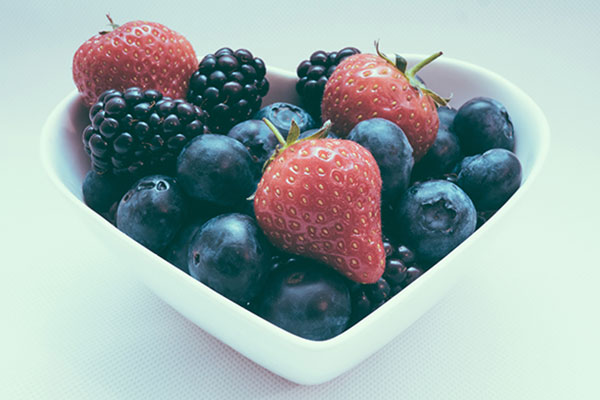
The heart is the most vital organ in the human body.
It is also the most overlooked muscle in the human body because it’s not visible on the exterior like skeletal muscles are. That is most likely why so many health enthusiasts completely forget about their heart when it comes to staying in shape and looking better–they just want superficial results rather than a healthy internal environment.
Heart disease is the leading cause of death in the United States. The good news is that the heart is trainable, and proper nourishment can enhance the vitality of it.
There are many ways foods can boost the heart health. For example, foods rich in antioxidants are a great way to reduce oxidative stress in cells, which in turn reduces damage to the myocardium (muscle tissue of the heart) and decreases the likelihood of heart failure.
Research has found a link between oxidative stress and occurrences of heart failure; studies continually show that chronic increases in oxygen radicals – molecules that antioxidants defend cells from – in the body results in severe damage to mitochondria, key organelles of cells. Essentially, antioxidants are imperative for keeping oxidative stress to a minimum.
On that note, read on as we examine other ways proper nourishment can be great for protecting your heart and enhancing longevity.
#1 – Berries
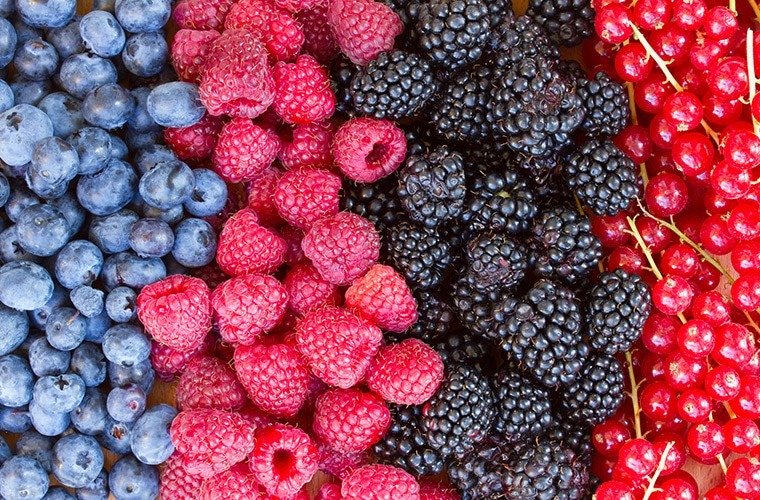
Per gram, wild blueberries contain the most polyphenol antioxidants of any natural food source, and blackberries, strawberries, raspberries, and cranberries are also high on the list. There are many polyphenols in nature, but data thus far suggests consumption of dietary polyphenols from berries is correlated with reduced inflammation and enhanced cell-to-cell signaling, which in turn protects cardiac tissue from degeneration.
#2 – Fish (especially oily varieties)
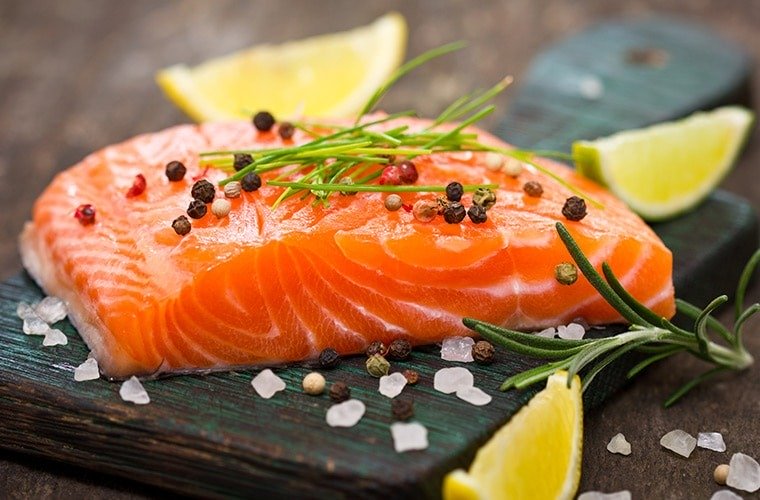
Freshwater fish are the richest natural sources of omega-3 essential fatty acids (specifically EPA and DHA). Research continually shows that omega-3 fatty acids reduce LDL cholesterol and blood lipids, two crucial markers to keep in check for the prevention of cardiovascular disease.
The American Heart Association recommends roughly 2-4 grams of fish oil intake per day for optimal heart health, which can be obtained by eating about 3-4 ounces of most oily fish (e.g. salmon, mackerel, etc). Do note that freshwater fish contain small amounts of metal contaminants, such as mercury and lead, so it is advised to limit consumption to about 2-3 times per week.
#3 – Spinach (and other leafy, green vegetables)
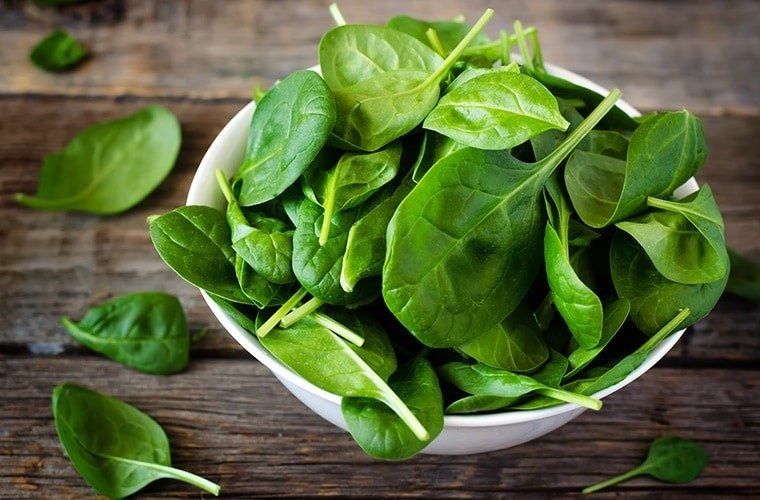
Spinach and most leafy, green vegetables like romaine lettuce and broccoli, are loaded with micronutrients; of special note are vitamin B6, vitamin B12, and folate/vitamin B9.
Research has demonstrated that these three B vitamins are crucial for keeping homocysteine levels in a healthy range. Homocysteine is an amino acid produced in the body that can be converted to cysteine with the help of the aforementioned B vitamins.
However, when these B vitamins are deficient, homocysteine levels rise and make the body prone to high levels of inflammation (especially in blood vessels, which in turn damages the heart and can lead to cardiovascular disease).
#4 – Apples

Apples of all varieties contain many polyphenol compounds, and a specific flavonoid called quercetin is abundant in them. Quercetin has been shown to reduce the risk of blood clots, lower blood pressure, and reduce inflammation, and it appears those who consume apples regularly have a lower risk of death from both cardiovascular disease and heart attack.
So, the old adage,“An apple a day keeps the doctor away” may actually have some validity to it.
#5 – Tomatoes
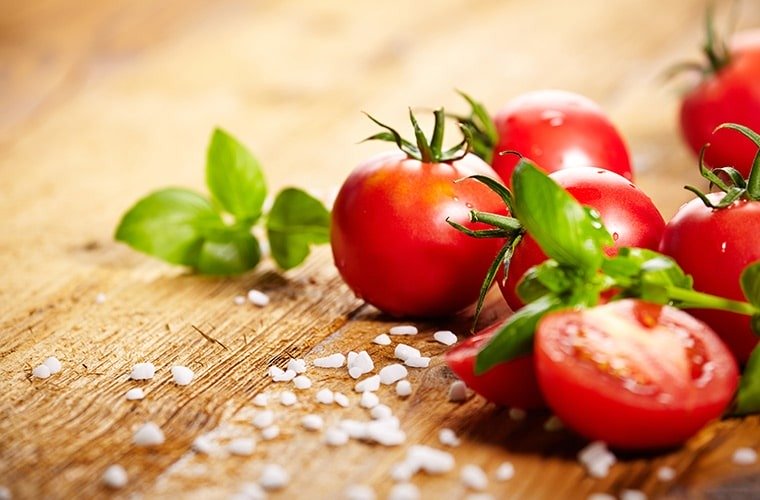
Lycopene, the primary antioxidant found in tomatoes, appears to have several roles in the body that reduce risk of coronary heart disease. Aside from it’s antioxidant properties, lycopene has been shown to inhibit the activity of an enzyme involved in cholesterol synthesis, thereby reducing LDL in the body.
Most physicians recommend at least 10,000 micrograms of lycopene per day for adults which sounds like an awful lot, but it’s actually quite easy to reach that mark through tomato-product consumption. For example, just one cup of canned tomato juice contains over 20,000 micrograms of lycopene; drink half a cup of that per day and you’ll be good to go!
#6 – Avocado
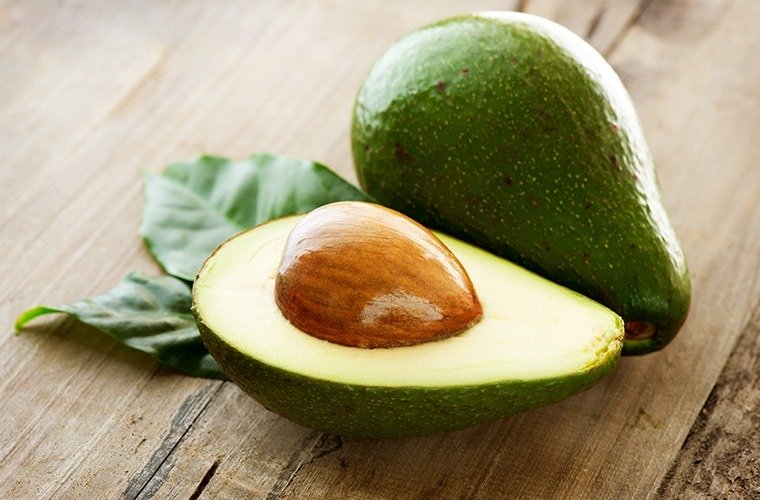
Many people avoid avocados for fear that they have too much fat to be a healthy food choice. However, the fat contained in avocados is nearly all in the form of monounsaturated fatty acids, which have actually been shown to reduce LDL cholesterol, increase HDL cholesterol, and improve blood lipid values. Moreover, avocado consumption has been shown to promote weight loss when substituted for vegetable oils in the diet.
#7 – Wheat Germ (beta sitosterol – reduces cholesterol absorption)
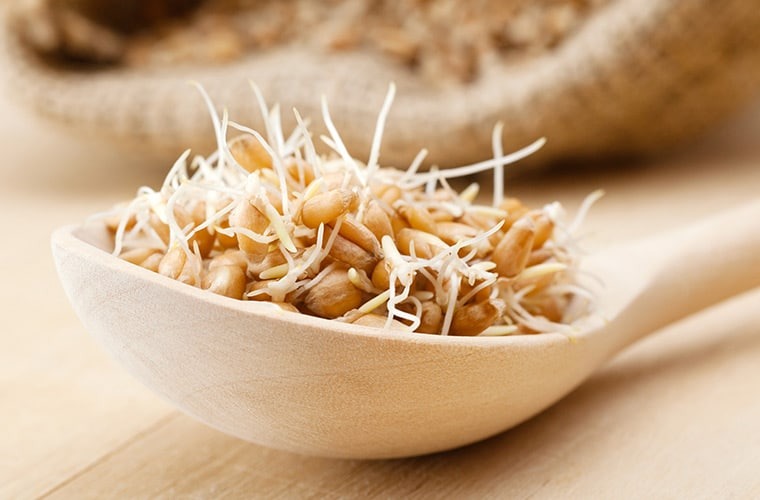
Wheat germ is loaded with micronutrients and fiber, and one of those particular nutrients – called beta-sitosterol – is a key contributor to proper heart health. Beta-sitosterol is a plant steroid that acts inhibit absorption/synthesis of cholesterol.
It appears this phytochemical also possesses many other health benefits in humans: easing symptoms of benign prostatic enlargement, reducing risk of cancer and prevention of oxidative damage through its antioxidant activity.
#8 – Walnuts
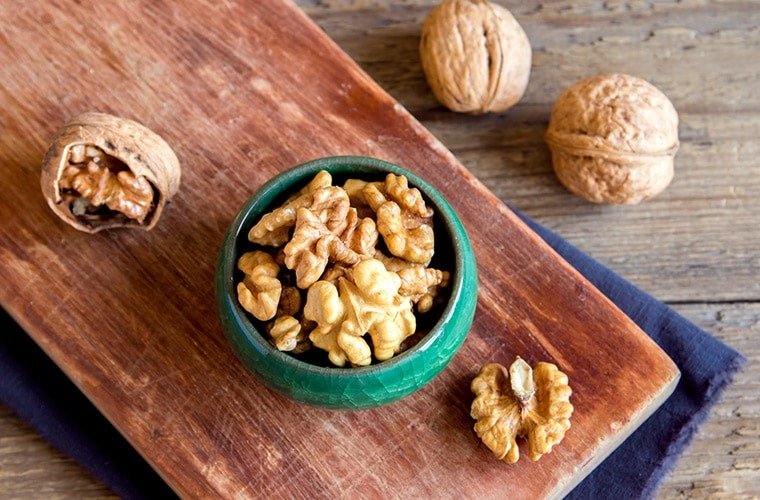
Walnuts are fantastic sources of essential omega-3 fatty acids (which were discussed earlier), and micronutrients like magnesium and manganese. In fact, a single serving (28 grams) of walnuts contains over 50% of the RDA of manganese.
Manganese is crucial for protecting against oxidative stress because it disposes of a reactive oxygen species in the body called superoxide. Research has shown that manganese promotes cell survival in patients with chronic heart failure
#9 – Green Tea
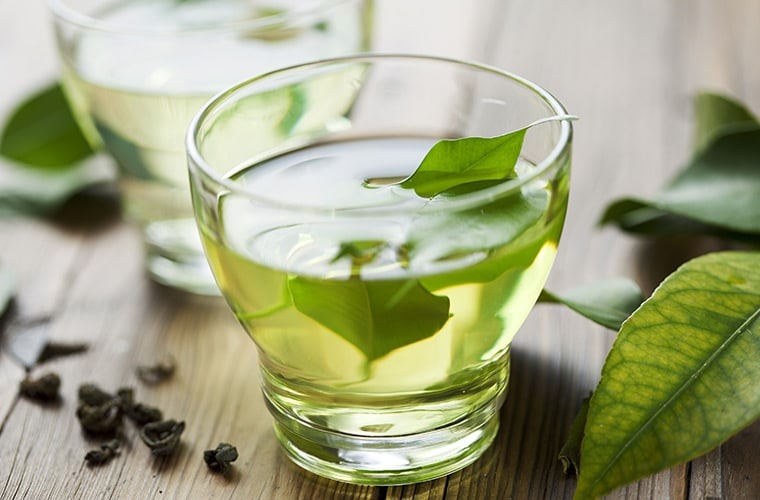
Green tea leaves are rich in a specific compound called epigallocatechin gallate (EGCG) that has been shown to inhibit oxidative stress caused by LDL and prevent constriction of blood vessels, allowing circulation to the heart (and rest of the body) to remain fluid.
It is recommended to ingest roughly 200-300 milligrams of EGCG per day, which can be found in about 1.5 grams of green tea leaves (or roughly, 12 ounces of standard brewed green tea).
#10 – Brazil Nuts
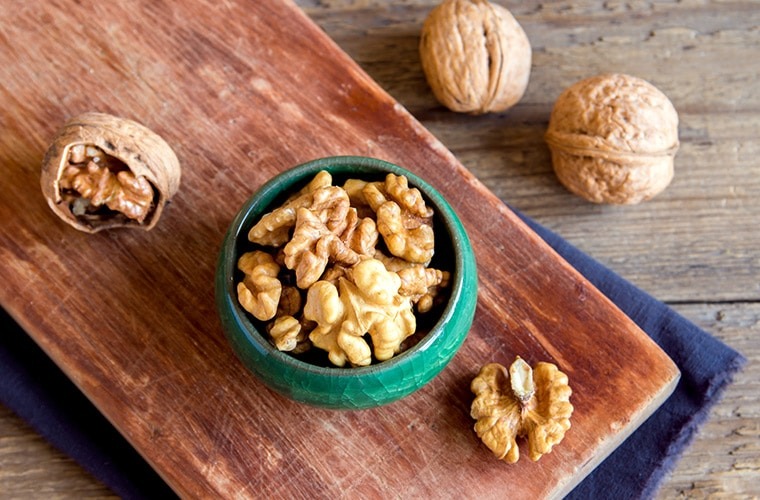
Brazil nuts are the most abundant source of selenium in nature, packing a whopping 750% of the RDA in a single 28 gram serving. Selenium content is also high in certain fish, such as tuna and halibut.
A meta-analysis of 25 observational studies found that people with lower serum concentrations of selenium had an increased risk of coronary heart disease. It appears that selenium works by binding to certain proteins in the body, forming selenoproteins, which help prevent the oxidative modification of lipids, reduce inflammation and decrease platelet aggregation.
#11 – Watermelon
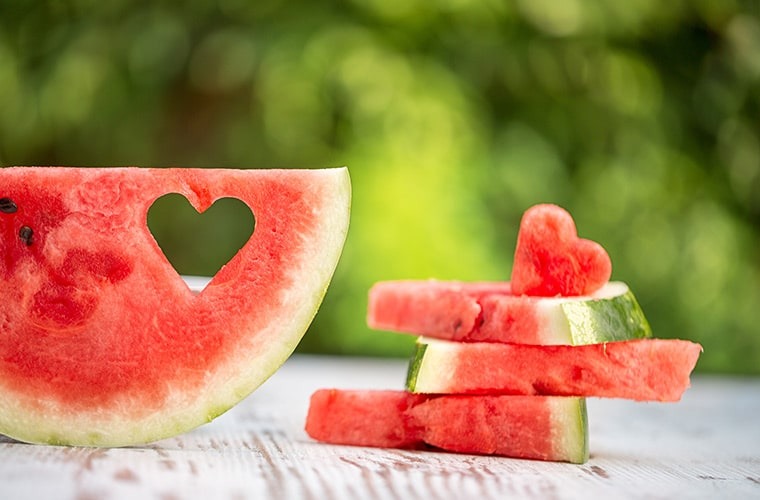
Watermelon is full of a specific, heart-healthy amino acid that most foods do not have – L-citrulline. Citrulline supplementation has a strong body of scientific and empirical evidence supporting its health benefits, aside from its role as a necessary biomolecule in the urea cycle.
Research has shown that citrulline lowers blood pressure and boosts blood flow to the heart, and has actually been used to treat patients with heart failure.
It is recommended to take in about 4-6 grams of citrulline per day, which can be obtained by eating about 150-200 grams of watermelon (most of the citrulline content is found in the rind of the watermelon, but that’s generally not very edible).
It cannot be overstated that heart health is the most crucial aspect of longevity. Without a healthy heart the rest of your body cannot function properly. Moreover, there’s plenty of evidence that individuals who pair a healthy diet with a consistent exercise regimen have improved blood pressure, lower resting heart rate, and better blood lipid profiles than those who live sedentary lifestyles (even if they still eat healthy). Starting a diet like the Whole30 diet will help keep your heart healthy.
Try and be active every day for at least 30-60 minutes, even if it’s just a walk around the neighborhood it’s still doing a lot more for your heart than sitting at home on the couch. The foods listed in this article are certainly full of nutrients that have been shown to promote healthy heart function; just don’t forget about the importance of balancing your diet with a proper exercise regimen.